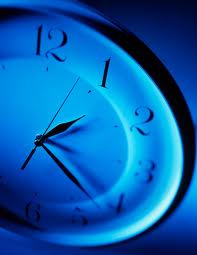Insomnia

Insomnia is a common but distressing condition and an under-treated problem that affects 58% of people in the UK at some point in their lives. 10% of these are classified as chronic as opposed to intermittent and these are people who experience problems going to sleep and those with scattered sleep or early morning awaking.
There are medical conditions such as sleep apnoea (obstruction to breathing when sleeping) Narcolepsy (instantly falling sleep) Hypertension (blood pressure) and cardiovascular disease all of which fall into different category and require medical intervention though hypnosis is very helpful in treating medically diagnosed sleep related conditions. Medication is often given in the form of prescription drugs for insomnia but hypnotic therapy offers a natural way to adjust sleep routines with out and need for drugs which can lead to dependency.
For insomnia both chronic and intermittent there are sensible and practical suggestions that are helpful to do before bedtime, like having hot drink, warm bath and aromatherapy oils such as sandal wood and valerian which are naturally calming and though not necessarily able to cure insomnia on a long term basis. Other issues develop as cause of long term sleep deprivation and problematic sleeping habits for which hypnosis is a calm and restful beneficial solution.
When a person is suffering from insomnia a psychological rule creeps into the picture called the Law of Reversed Effect; the harder sleep onset is tried, the less it happens. The worry of not sleeping creates a cycle of anticipated failure as the adrenaline begins to pulse through your system and sleep continues to elude you for another night. Random thoughts pop into your head, time passes and the clock races towards dawn again leaving the person feeling tired, stressed and frustrated at not having managed to have had a deep and enervating rest.
Hypnosis will be most effective if initially the specific sleep pattern is examined and understood so that any external causes that may be contributing towards sleeplessness can be addressed and removed. Then with a clear understanding of the ways you may be stopping yourself from sleeping a therapeutic hypnotic programme can be developed to ensure positive long term lasting benefits.
Since the deepening trance states of hypnosis represent a stage midway between alert consciousness and sleep, it is easy to see how marvellous hypnotherapy can be for insomnia. It restores harmony and balance between mind and body so that the nervous system rests and the conscious mind cease to worry about a future that has not yet happened.
Hypnotic therapies focus on relaxation techniques and self hypnosis, positive imagery and challenging the stress and fear that you won’t sleep enough and wake up refreshed in the morning. A good night’s sleep is anti-ageing, allowing the body to recover and repair itself, renewing vital functions so that you wake in the morning after a blissful nights sleep feeling radiant, confident and able to deal with the day and happily, hit the ground running for the first day of the rest of your life feeling wonderful.
There are medical conditions such as sleep apnoea (obstruction to breathing when sleeping) Narcolepsy (instantly falling sleep) Hypertension (blood pressure) and cardiovascular disease all of which fall into different category and require medical intervention though hypnosis is very helpful in treating medically diagnosed sleep related conditions. Medication is often given in the form of prescription drugs for insomnia but hypnotic therapy offers a natural way to adjust sleep routines with out and need for drugs which can lead to dependency.
For insomnia both chronic and intermittent there are sensible and practical suggestions that are helpful to do before bedtime, like having hot drink, warm bath and aromatherapy oils such as sandal wood and valerian which are naturally calming and though not necessarily able to cure insomnia on a long term basis. Other issues develop as cause of long term sleep deprivation and problematic sleeping habits for which hypnosis is a calm and restful beneficial solution.
When a person is suffering from insomnia a psychological rule creeps into the picture called the Law of Reversed Effect; the harder sleep onset is tried, the less it happens. The worry of not sleeping creates a cycle of anticipated failure as the adrenaline begins to pulse through your system and sleep continues to elude you for another night. Random thoughts pop into your head, time passes and the clock races towards dawn again leaving the person feeling tired, stressed and frustrated at not having managed to have had a deep and enervating rest.
Hypnosis will be most effective if initially the specific sleep pattern is examined and understood so that any external causes that may be contributing towards sleeplessness can be addressed and removed. Then with a clear understanding of the ways you may be stopping yourself from sleeping a therapeutic hypnotic programme can be developed to ensure positive long term lasting benefits.
Since the deepening trance states of hypnosis represent a stage midway between alert consciousness and sleep, it is easy to see how marvellous hypnotherapy can be for insomnia. It restores harmony and balance between mind and body so that the nervous system rests and the conscious mind cease to worry about a future that has not yet happened.
Hypnotic therapies focus on relaxation techniques and self hypnosis, positive imagery and challenging the stress and fear that you won’t sleep enough and wake up refreshed in the morning. A good night’s sleep is anti-ageing, allowing the body to recover and repair itself, renewing vital functions so that you wake in the morning after a blissful nights sleep feeling radiant, confident and able to deal with the day and happily, hit the ground running for the first day of the rest of your life feeling wonderful.
